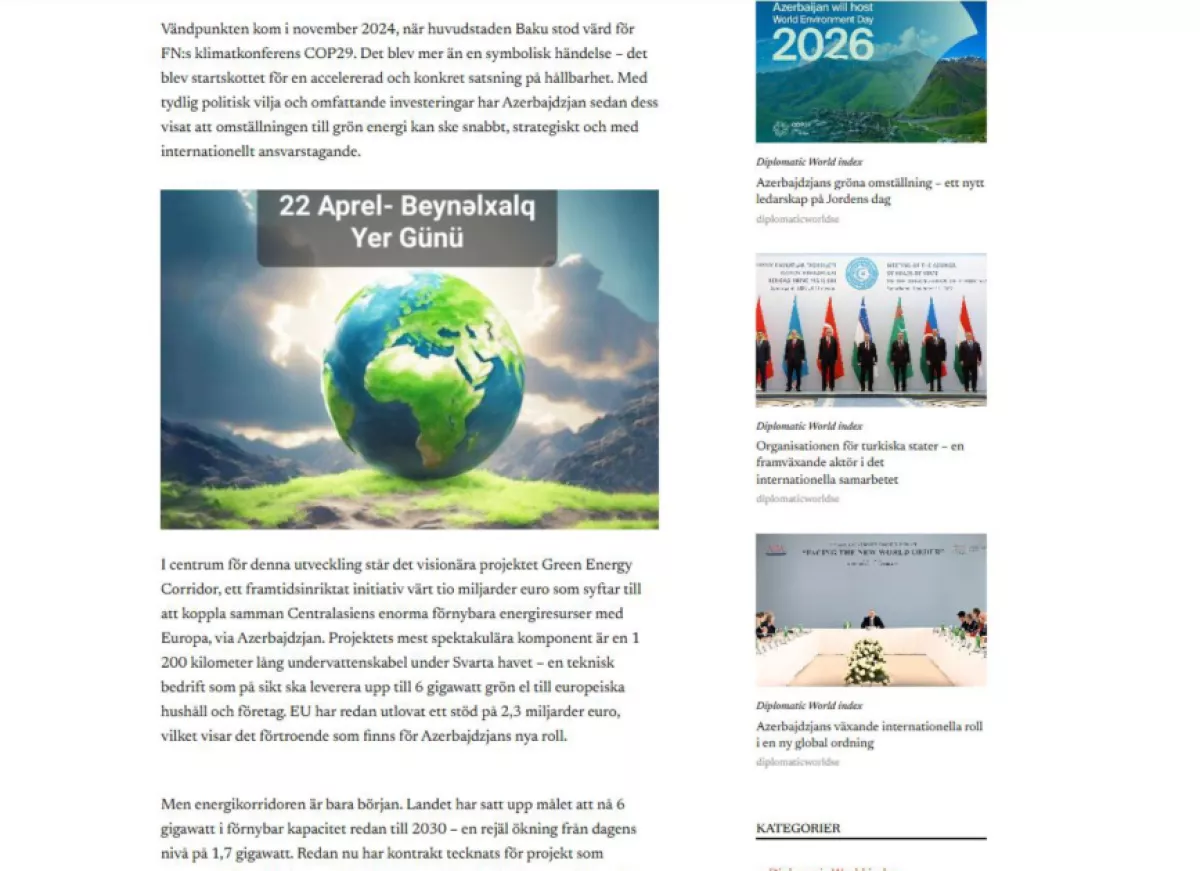Swedish platform praises Azerbaijan’s renewable energy drive and climate strategy PHOTO
An article dedicated to Azerbaijan’s contribution to the fight against global climate change has been published on the website of Diplomatic World Sweden, an information platform created for politicians and foreign embassy staff in Sweden.
According to domestic media, the publication was timed to coincide with International Earth Day, which is marked annually on April 22, Caliber.Az reports.
The article presents Azerbaijan as a striking example of how a country with an oil-based past can become a key player in building a sustainable energy future. Particular attention is given to a major event — the hosting of the United Nations Climate Change Conference (COP29) in Baku in November 2024. The author notes that from that moment on, Azerbaijan accelerated its transition toward green development, demonstrating political will and readiness for international cooperation.
At the heart of the article is the "Green Energy Corridor" project — a large-scale €10 billion initiative aimed at connecting Central Asia’s energy resources to Europe via Azerbaijani territory. The most impressive component of the project is a 1,200-kilometre-long submarine cable under the Black Sea, which is expected to deliver up to 6 gigawatts of green energy. The European Union has already expressed its support for the initiative, allocating €2.3 billion for its implementation.
The article also highlights Azerbaijan’s rapid expansion in renewable energy capacity — from 1.7 GW today to a projected 6 GW by 2030, with contracts already signed for projects exceeding a total of 10 GW. The signing of agreements with Kazakhstan and Uzbekistan for the construction of a high-voltage transmission line across the Caspian Sea is also noted, positioning Azerbaijan as a key energy bridge between Asia and Europe.
The piece touches on the country’s domestic development as well. It highlights smart and climate-resilient city projects underway in Nakhchivan and the Eastern Zangezur region, which feature solar panels, energy-efficient technologies, digital management systems, and environmentally friendly transport. Eastern Zangezur, in particular, is described as a model of how post-conflict recovery can be used as an opportunity for ecological transformation.
Additionally, the article points to the strengthening cooperation between Azerbaijan and Sweden, particularly in the fields of clean technologies, the circular economy, and sustainable urban development.
"Through bold leadership, global cooperation, and a forward-looking approach, Azerbaijan is writing a new chapter — one that offers hope not only to its own people, but to the entire planet, when political courage, strategic thinking, and international partnership come together," the author concludes.

By Tamilla Hasanova








